Meet Max Kantor from Huntington Beach, California. Max is a graduate of California Maritime Academy, where she earned a Bachelor’s Degree in Marine Transportation and a USCG Unlimited Tonnage Third Mate License.
For almost 7 years, Max has worked on the water. She has experience on a research vessel, crude oil tankers and tugs. Max upgraded her Third Mate License and now holds a USCG Second Mate License. She has also earned a USCG 1600 Tons Master’s License.
When we heard about what Max had been up to recently, we were excited to feature her career. Max currently works on a research vessel as a second mate, AND is a swimmer for the submarine, Alvin! As you may remember we featured Alvin, a few months ago, in our Early Wave Makers section.
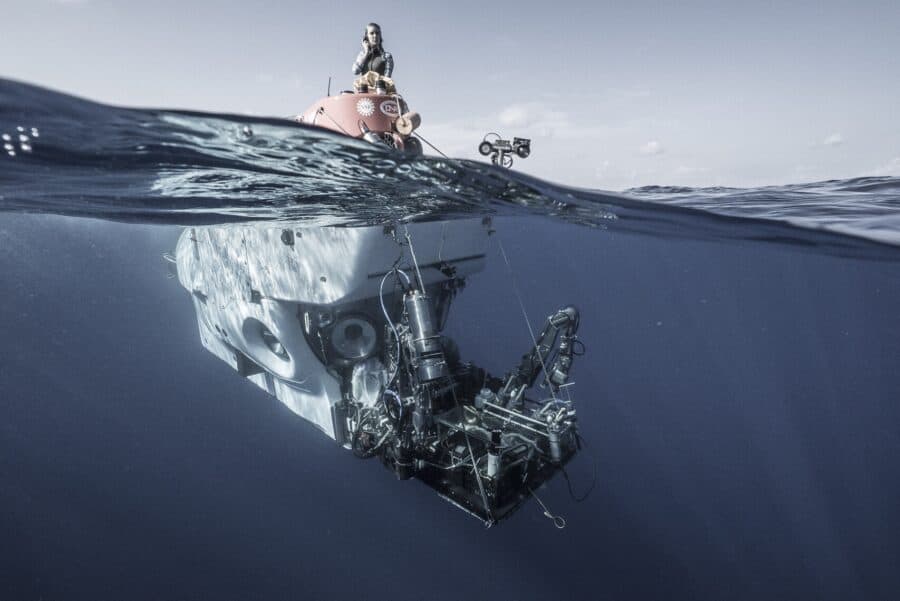
Max, atop of the Alvin. Photo Source: Woods Hole Oceanographic Institute.
Below, Max lets us in to experience a small snapshot of what her life is like working on a research vessel, all over the world:
Max, could you please start out by describing what your duties are in your current position?
“I am in charge of maintaining the navigational equipment and charts on the vessel. In research vessel work, the Officer-in-Charge of the navigational watch is responsible for any operation during the time of their watch. This can be launching and recovering the manned submersible, to the launching and recovery of ROVs (remotely operated vehicle) and AUVs (autonomous underwater vehicle), including laying mooring buoys and other scientific equipment.”
Which part of the world do you work in?
“My company is based in Woods Hole, Massachusetts, but the vessel will go anywhere in the world that science needs us to go. Typically, we are in the Pacific and Atlantic Oceans.”
What inspired you to work on the water?
“My mom and dad first met while they were both working for companies serving the ports of Long Beach and Los Angeles, California. I have fond memories of my dad taking me onto ships when I was a little girl, and remembering interactions I had with the captains and crews of the ships. My mom has since left the industry, but she was always going to events in the harbor when I was a kid. We have always had family friends in the industry. I discovered the maritime academies when I started applying to university and decided to go to California Maritime Academy for Marine Transportation.”
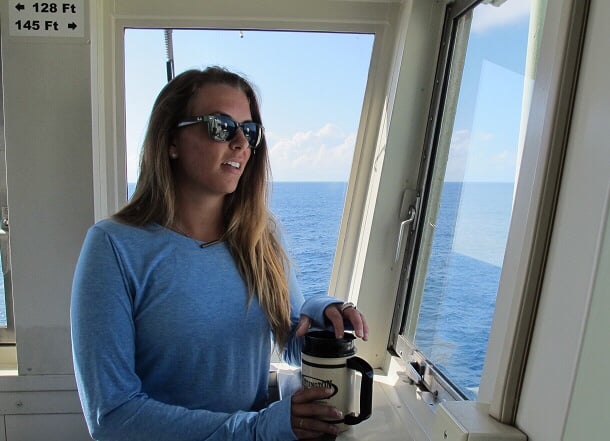
Please share a sea story with a lesson learned or a memorable experience you’ve had at sea.
“While in port in Mexico there was a very severe injury to a crew member on the vessel. A stack of steel plates the manned submersible uses, fell and clipped his leg resulting in a myriad of injuries. I had previously trained as an EMT through NOLS (National Outdoor Leadership School). This training, accompanied with my medical PIC (person-in-charge) class were invaluable to the treatment (I hoped) I provided. We struggled to get the local emergency medical services to respond, and it was by per happenstance that a paramedic was on the dock at the time of the injury. Fortunately, I was able to stabilize the crew member and move him out of the space. He was transported shortly thereafter, to a hospital. I think, a big lesson I learned, was to make sure I knew who to call when medical emergencies happen in foreign countries. More importantly, I learned that you need to trust yourself and remember the training you’ve received.”
What motivates you to continue working on the water if it’s a long-term career for you?
“I love the discovery of working on a research vessel. Every cruise’s mission is different and brings people from all over the globe, to collect and study data that will better the world. I love the ship-handling experience I get while launching and recovering science equipment. I wanted to be a pilot, and I’d love to explore that one day, but right now I’m working towards a Chief Mate’s license, and intend to sail with Woods Hole Oceanographic Institute over the next foreseeable future. The vacation time is amazing, too! I travel a lot for snowboarding. There’s still a lot of the world to explore, and you can’t beat the vacation time you earn while sailing.”
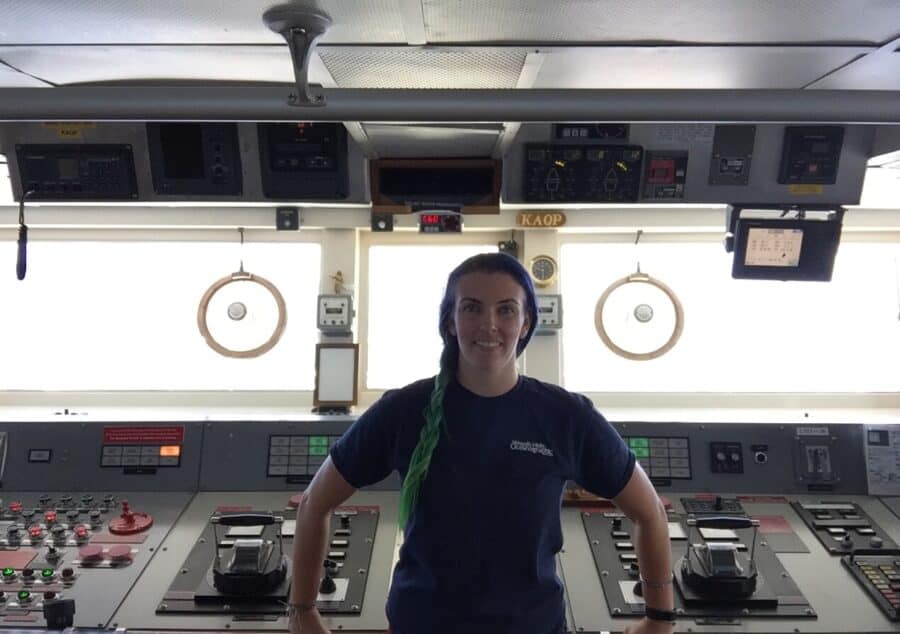
What challenges have you faced in your career?
“I’ve made many mistakes. The most painful one to remember led to damage of a piece of machinery. Instead of trying to blame anyone for the mistake, I apologized and I owned what happened. That level of accountability saved me from getting fired. I learned a valuable lesson that day. Even if you check things a million times for correctness, you will make mistakes. This is a human characteristic. Most importantly, you are accountable to yourself. Don’t make excuses. Know that whatever shame or embarrassment you feel will pass. If you can learn from it, then you will grow from it, regardless of what ‘it’ is.”
What do you think can be done in your industry to encourage more women to pursue similar careers?
“I think it starts with trying to do what Women Offshore is doing. We need to unite the community of bad ass women who are already working in the industry, and give voice to this community in the social, physical and digital worlds!”
Thank you, Max, for sharing your career with our readers! We admire you and look forward to hearing more about your adventurous career!
Featured Photo Source: Woods Hole Oceanographic Institute.

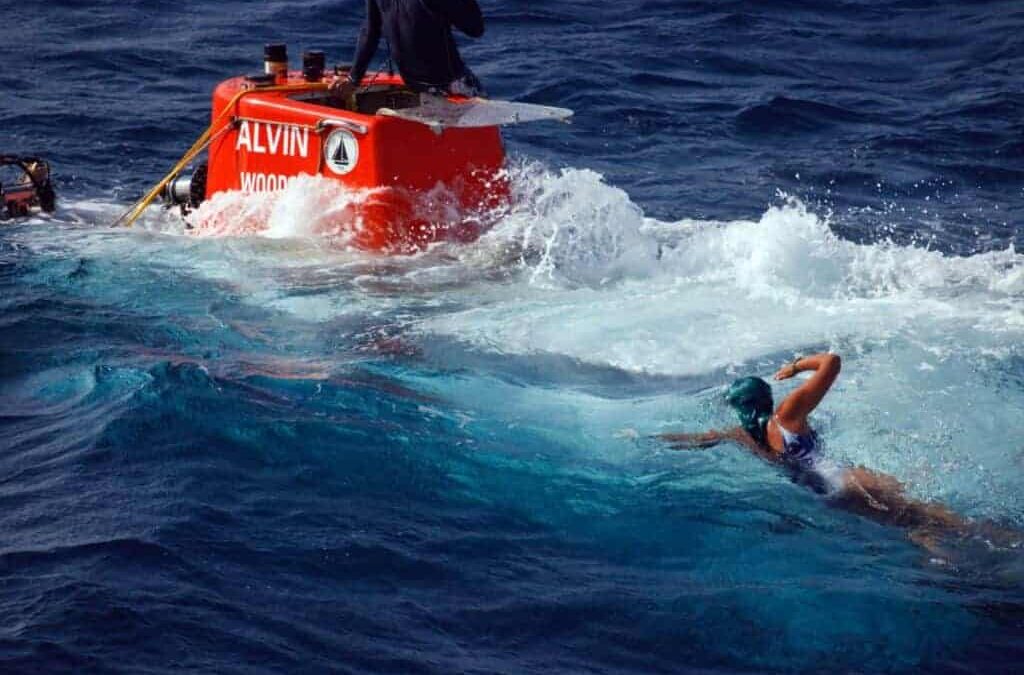
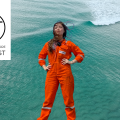
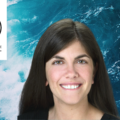
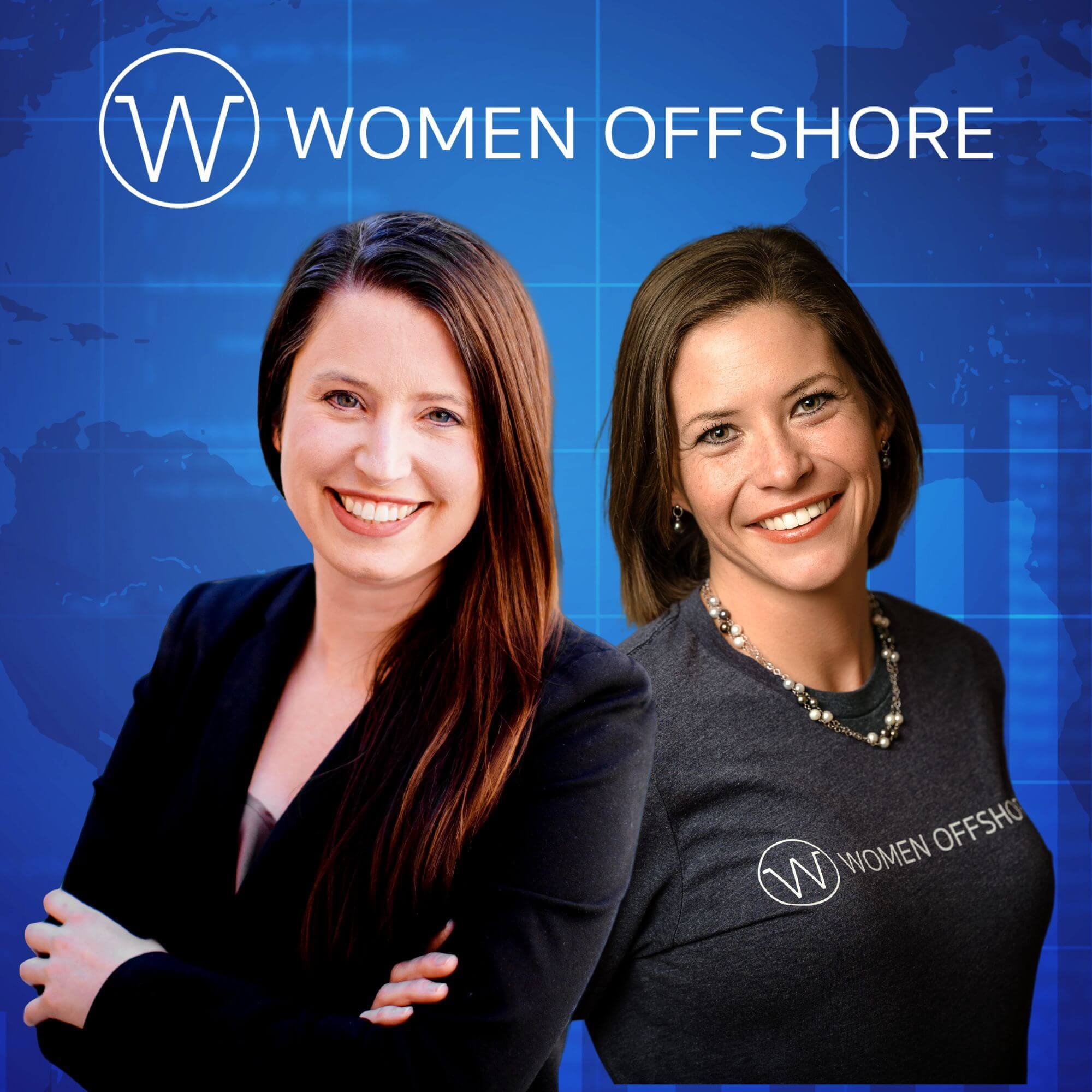

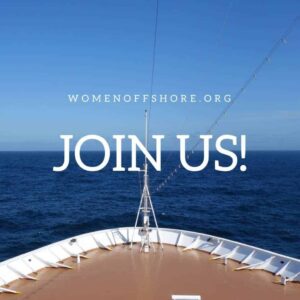
Recent Comments